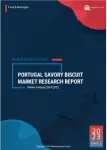Market Research Future (MRFR) has published a cooked research report on the “Luxury Cars Market” that contains information from 2019 to 2032. The Luxury Cars Market is estimated to register a CAGR of 7.30% during the forecast period of 2024 to 2032.
MRFR recognizes the following companies as the key players in the global Luxury Cars Market— Mercedes-Benz (Germany), Audi (Germany), BMW (Germany), Lexus (Japan), Porsche (Germany), Jaguar Land Rover (U.K.), Cadillac (U.S.), Maserati (Italy), Volvo (Germany), and Genesis (South Korea).
Market Highlights
The global Luxury Cars Market is accounted to register a CAGR of 7.30% during the forecast period and is estimated to reach USD 1179.4 billion by 2032.
The tightening of global car emission standards, spurred by heightened governmental emphasis on environmental conservation, stands as a pivotal catalyst driving market expansion. Consequently, there is a noticeable surge in demand for eco-friendly and sustainable transportation options, notably electric cars.
Segment Analysis
The global Luxury cars market has been segmented based on the Vehicle Type, Propulsion, and Component.
Based on the Vehicle Type, the market is segmented into SUV, Sedan/Hatchback, and Sports/Super Luxury Cars. The Sports/Super Luxury Cars segment was attributed to holding the largest market share in 2023. Sport Utility Vehicles (SUVs) appeal to consumers seeking practicality and functionality, offering spacious interiors, generous cargo capacity, and adaptable seating arrangements. Luxury SUVs seamlessly blend opulent features with utility, providing owners with a premium driving experience tailored to their lifestyle requirements.
Based on the Propulsion, the Luxury car market has been segmented into Electric/Hybrid and ICE. The Electric/Hybrid segment was expected to hold the largest market share in 2023. Luxury electric and hybrid vehicles are equipped with cutting-edge technologies like high-capacity batteries and regenerative braking systems, ensuring smooth acceleration and quiet operation. This enhances the demand for luxury electric cars in the market. In April 2023, Mercedes-Benz introduced four new luxury electric vehicles in India, aiming to capture 25% of the country's total electric vehicle sales by 2027.
Based on the Components, the Luxury car market has been segmented into Drivetrain, Interior, Body, Electronics, and Chassis. The dominance of the luxury vehicle segment in the market is propelled by the demand for high-performance drivetrains known for their exceptional power, acceleration and dynamic handling capabilities.
Regional Analysis
The global Luxury car market, based on region, has been divided into North America, Europe, Asia-Pacific, and Rest of the World. North America consists of the US and Canada. The Europe Luxury Cars Market comprises Germany, France, the UK, Italy, Spain, and the rest of Europe. The Luxury car market in Asia-Pacific has been segmented into China, India, Japan, Australia, South Korea, and the rest of Asia-Pacific. The Rest of the World Luxury car market comprises the Middle East, Africa, and Latin America.
The largest market share for the Luxury Cars Market was maintained by the North American regional sector. The increasing competitiveness driven by the emergence of new market players is expected to propel market growth. Major automotive manufacturers are introducing a new lineup of luxury electric vehicles, thereby creating opportunities for participants in the North American luxury car market. In 2022, Tesla emerged as the top luxury car brand in the United States, achieving sales of approximately 484,400 units, surpassing its main rival BMW, which recorded sales of over 327,900 vehicles. Luxury car sales generated an estimated revenue of $7.4 billion in the U.S. in 2022, with anticipated growth projected for 2023.
Moreover, the Europe market has been persistently growing over the forecast period. The increasing awareness of the benefits of luxury cars and their appealing aesthetics is driving demand, particularly among millennials. Factors such as flexibility, payload capacity, drivability, elevated driver's seat perspective, and easy cabin access are contributing to the popularity of SUVs. Many of the latest SUVs belong to the crossover category, characterized by larger, more rounded designs compared to traditional truck-based SUVs. The European luxury car segment has witnessed heightened sales spurred by various launches. For example, in May 2022, Hyundai announced plans to introduce three Genesis luxury electric vehicles in the European market. The company's flagship premium model, the Genesis G80, along with the GV80 SUV, was expected to debut by the end of June 2022 in Europe. Additionally, the introduction of several products in Germany and the UK has played a pivotal role in driving demand for luxury cars. For instance, in September 2021, Daimler AG, a renowned German automaker, unveiled its collaboration with Stellantis NV and TotalEnergies SE. This partnership aims to enhance the scale of its European battery venture, with investments reaching approximately EUR 7 billion. The primary objective is to ensure a stable supply chain for electric Mercedes-Benz luxury cars.
In the Asia-Pacific region, China holds the highest growth potential in the luxury car market. Premium automakers like Audi, Mercedes-Benz, BMW, Lexus, and Volvo consistently experience positive growth in China. According to the China Automobile Dealers Association, luxury car dealers in the country sold 277,000 vehicles in April 2020, marking an 11.1% increase from April 2019. Luxury car sales represented 18.7% of the market in April 2020, reflecting a 3.6% rise from April 2019 and a 0.4% increase from March. India is also emerging as one of the fastest-growing markets in the Asia-Pacific region. However, due to the impact of COVID-19, the market experienced a downturn. For instance, data from the Federation of Automobile Dealers Associations (FADA) indicated that in July 2020, the overall share of luxury car players in the total passenger vehicle market decreased to 0.50%, compared to 1.11% for the same month the previous year.
Furthermore, the rest of the world's Luxury car market is divided into the Middle East, Africa, and Latin America. The region's rapid economic growth, driven by oil revenues, diversification efforts, and investments across various sectors, stands as a primary factor positively influencing the market. Furthermore, increasing concerns about road safety among the population are prompting them to opt for luxury cars. In 2022, BMW made significant strides in the UAE, selling an impressive 4,212 cars in the first half of the year alone, marking a remarkable 19% increase compared to the same period in 2021. As of March 2022, BMW emerged as the top-selling luxury car brand in South Africa, having sold 1,094 units. Following closely behind was Mercedes-Benz, with 1,048 vehicles sold, while Audi secured third place with 495 units sold in the country.
Key Findings of the Study
- The global Luxury car market is expected to reach USD 1179.4 billion by 2032, at a CAGR of 7.30% during the forecast period.
- The Asia-Pacific region accounted for the fastest-growing global market because of increasing demand for a comfortable driving experience and increasing penetration of electric mobility.
- Based on vehicle type, the sports/super luxury car segment was attributed to holding the largest market in 2023, with an approximate market share of 55–60%.
- Mercedes-Benz (Germany), Audi (Germany), BMW (Germany), Lexus (Japan), Porsche (Germany), Jaguar Land Rover (U.K.), Cadillac (U.S.), Maserati (Italy), Volvo (Germany), and Genesis (South Korea)are the key market players.
Leading companies partner with us for data-driven Insights
Kindly complete the form below to receive a free sample of this Report
| Base Year | 2023 |
| Companies Covered | 15 |
| Pages | 128 |
Certified Global Research Member


Why Choose Market Research Future?
- Vigorous research methodologies for specific market.
- Knowledge partners across the globe
- Large network of partner consultants.
- Ever-increasing/ Escalating data base with quarterly monitoring of various markets
- Trusted by fortune 500 companies/startups/ universities/organizations
- Large database of 5000+ markets reports.
- Effective and prompt pre- and post-sales support.
Tailored for You
- Dedicated Research on any specifics segment or region.
- Focused Research on specific players in the market.
- Custom Report based only on your requirements.
- Flexibility to add or subtract any chapter in the study.
- Historic data from 2014 and forecasts outlook till 2040.
- Flexibility of providing data/insights in formats (PDF, PPT, Excel).
- Provide cross segmentation in applicable scenario/markets.



















